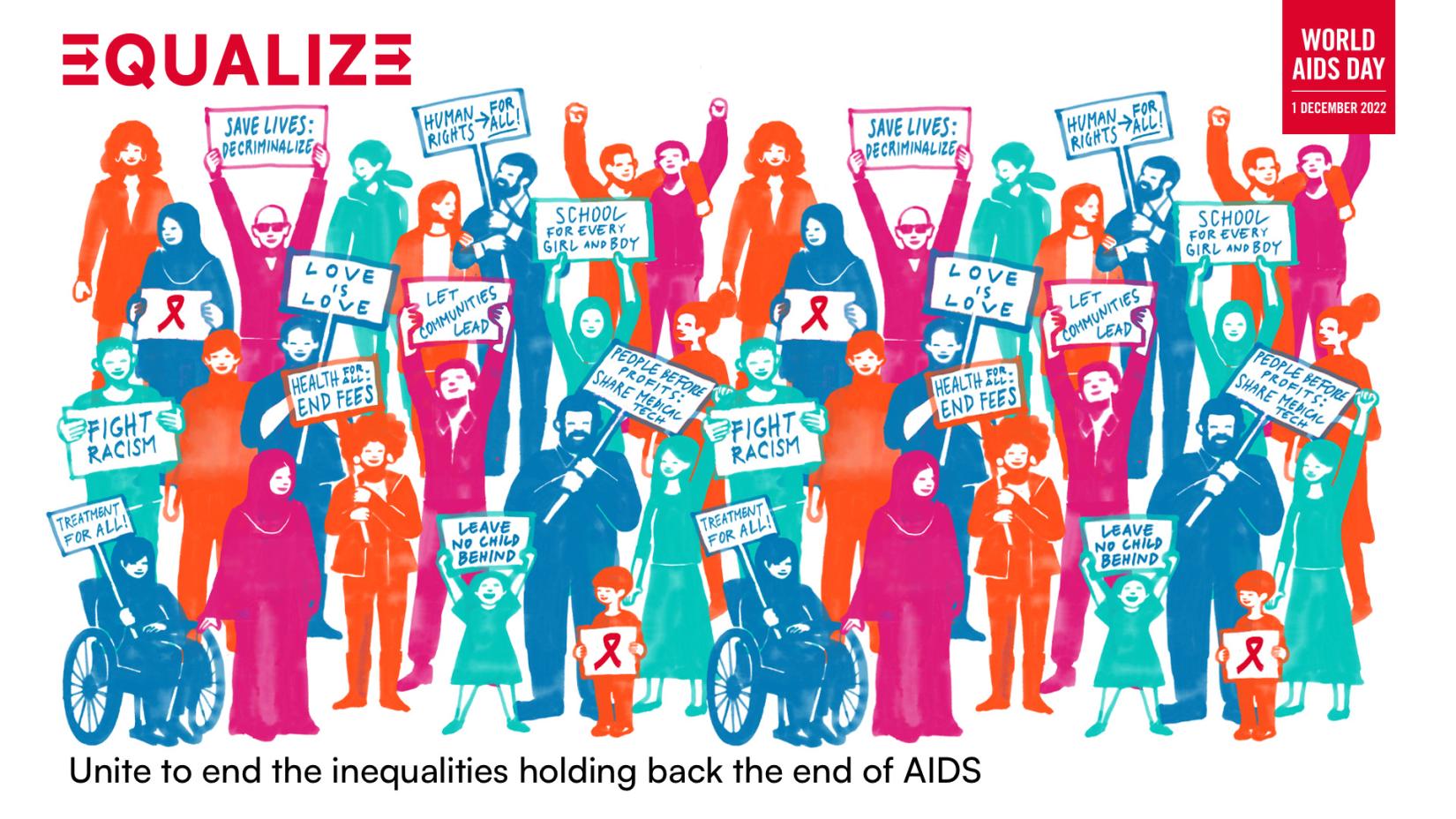Speaking ahead of World AIDS Day 2022, commemorated around the world annually on 1 December, Ulrika Richardson, the UN Resident and Humanitarian Coordinator said: “The inequalities which perpetuate the AIDS pandemic are not inevitable; we can tackle them. Ultimately, the end of AIDS can only be achieved if we address social and economic injustices.”
World AIDS Day is an opportunity for people to come together to show solidarity towards people living with and affected by HIV, the virus that leads to AIDS, and to remember those who lost their lives to AIDS.
The theme of this year’s commemoration is “Equalize”, a call to action to maintain financial support to the response and to prioritize the health and well-being of all people, especially vulnerable populations that are most affected by HIV-related inequalities.
Analysis presented in the latest UNAIDS report, “Dangerous Inequalities”, shows that inequalities, are hindering progress towards meeting meet globally agreed targets to end AIDS.
In Haiti, the 1 December commemoration is being led by the Ministry of Public Health and Population and accompanied by UNAIDS as well as national and international partners. The event focuses on the need to further adapt the national response to the unmet needs of key populations, in particular the LGBTQI community, including the elimination of persistent and viscous stigma and discrimination.
Gender inequalities are significantly contributing to the AIDS pandemic in Haiti. Women and girls have a higher prevalence of HIV (2.2 per cent) compared to men (1.4 per cent). The increased vulnerability of women and girls to sexual violence also perpetuated by gangs especially throughout the capital Port-au-Prince in 2022, needs to be urgently addressed as part of the response.
“Mitigating the risks and impact of HIV requires continued efforts for a community response with women and girls, men and boys, in all their diversity, who practice equitable social norms and gender equality and work to end gender-based violence...Let's Push for Equality”, said Dr. Christian Mouala, UNAIDS Country Director.
NOTE TO EDITORS: In close collaboration with the National Programme on HIV/AIDS (PNLS), the United Nations Joint Programme of HIV/AIDS in Haiti is supporting the national response, complementing activities implemented via GFATM and PEPFAR investments and working towards internationally agreed targets encapsulated in the 2021-2026 Global AIDS Strategy.
The Joint United Nations Programme on HIV/AIDS (UNAIDS) is a joint venture of the United Nations family which brings together the efforts and resources of 11 UN system organizations to unite the world against AIDS. The participating organizations that form UNAIDS, also called the UNAIDS Cosponsors, are: ILO, UNDP, UNESCO, UNFPA, UNHCR, UNICEF, UNODC, UN Women, WHO, World Bank, World Food Programme.
For more information contact:
Daniel Dickinson, Office of the Resident and Humanitarian Coordinator dickinsond@un.org
Paola Solda, UNAIDS Country Office Haiti soldap@unaids.org







